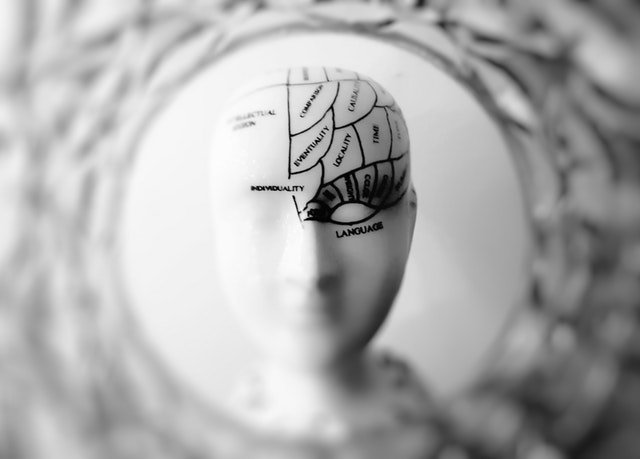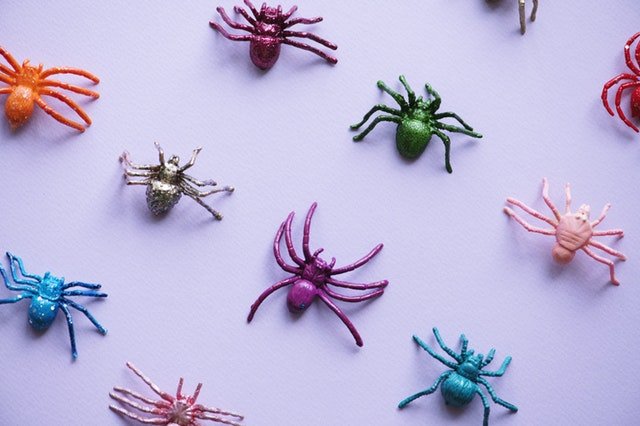The brain is a data interpreting machine which talks with itself. In the simplest sense, the brain listens to you just as you listen to it. It also likes to make stories because they are easy and efficient when it comes to neurons signaling other neurons in a non-biological way (thinking, thinking about thinking, narratives, etc). And, it does not know the differences between real and unreal. It can be tricked easily.
We are going to look at psychology tricks to make life easier.
Trick 1: Deliberate smiling to improve your state

If you are gloomy and sad, a simple act of faking a smile will create feedback channels which make the brain respond like it is happy- just because a smile is linked to momentary joy. After a while, your brain will automatically sync with your smile and make you feel genuinely happy. This psychology trick can be practiced and implement with almost no effort. It is one of the most economical tricks.
The brain & the body are in a feedback loop. One affects the others in multiple nuanced ways. Smiling on purpose will employ similar neural networks as an authentic smile. This means forcing a smile (and by extension, excitement by jumping around) can make you experience things associated with experiencing joy at the physical & mental level.
Recommended reading: How to fake it till you make it
Trick 2: How to avoid awkward eye contact

If you are bothered by someone looking at you, and you happen to make weird eye contact and quickly pull your gaze away, you can look again and give a big bold smile. This will not only alleviate the anxiety but also make the other person feel like he/she has been fully noticed. This will, in turn, make the other person not look to avoid further awkwardness. This is one of the easiest psychology tricks. In fact, it’s way too easy and you’ll be surprised how well it works.
Another related hack is to look between the eyes if direct eye contact is difficult for you. Your eyes don’t converge inward so it still looks like you really are making eye contact.
Recommended psychology trick: If you want to learn another trick to alleviate anxiety, here you go.
Trick 3: A memory hack

The peg system for memory is one of the coolest. Let’s say you want to remember your grocery item list. Practice visualizing the numbers from 1 to 20 with something that sounds similar to or looks like the numbers. For example, when I think of 5, a beehive pops into my head because it rhymes and I don’t like bees. If the fifth item on my list is tooth-paste, I will visualize something like “a giant toothpaste is mankind’s last weapon against an alien spaceship which looks like a bee-hive.” So now it’ll be easy to recall the story and remember the 5th item. Remember, the key to this is making sure that your story for visualization is dramatic, detailed, and the ‘peg’ (5 = hive) is easy to recall.
Here are memory pegs for 1 to 10 in English.
- Sun
- Shoe
- Tree
- Fort
- Hive
- Netflix
- Heaven
- Weight (gym weights)
- Wine
- Hen
A related trick is chunking. You group items based on how they are related. The kitchen items could be one group, hygiene could be one more. The goal is to purposefully group items. Interconnected and underlying features help to remember something better.
Recommended memory techniques: Here is a lot more on how to improve memory.
Trick 4: Thinking to avoid procrastination

If you have a lot of tasks at hand and you feel like procrastinating, remind yourself of the next days’ tasks at night before sleeping. By doing this, you prime your brain to act on them, and the brain begins working on ‘how to complete them’ during your sleep. Read about Incubation and diffused thinking for a better understanding of this process.
Before doing a big task, do it in your head first. Later when you actually start doing it, your brain will have figured out many mistake-prone areas and make it seem easier because you’ve had a head start. Pun intended. A special category of procrastinators called “active procrastinators” do something similar. They wait until the last minute where the pressure builds up but their brain keeps doing something useful in the background until the last minute.
Recommended psychological strategy: Here is a complete guide on overcoming procrastination. Remember, procrastination is not about time management, a weak will, or laziness. It is about emotional regulation!
Trick 5: Reducing the impact of motion sickness

If you are traveling and you feel sick, you can trick the brain into not feeling sick. Motion sickness is when your eyes or ears give the brain ‘data’ which does not match reality and each other. That means if you are moving, the ‘balance and motion interpreter’ in the ear (vestibular system) tells the brain that you are moving, but your eyes are looking at something stationary thus telling the brain that you are stationary. This conflict usually results in motion sickness. Simply look outside the window to tell your brain how you are moving or make an elaborate story describing this movement.
Recommended reading: If you wish to know the functions of the many senses we have, check this out.
Trick 6: Lying & believing the fake is real

The brain doesn’t understand true or false very well. Tell it a story one hundred
*CAUTION: please acknowledge all ethical concerns here.
Suppose you are a smoker and you want to quit. And your trigger is social anxiety. Then, you can tell yourself- ‘I do not need to smoke because I need to healthily handle my anxiety while meeting acquaintances outside of work.’ Your brain will believe this after a while and it’ll be much easier to hold off that cigarette.
If you tell yourself that something scares you, regardless of it being a real scare, you will believe it and get scared for no apparent reason, only because you are telling yourself that.
This psychology trick should be used to counter problems, not for deception with ill-intent. You also don’t want to lie to yourself so much that you feel like an imposter. A lot of people believe they are worth very little and feel they deserve something little. It takes a toll on their self-worth and self-esteem. This is partly caused by telling yourself that you, in fact, deserve less. Changing this thought pattern is a productive way to use this trick.
Related psychology trick: Talking with yourself in the third person or addressing yourself by your own name can lower anxiety.
Enjoy using these psychology tricks. Do post questions in the comments section!
Do you like psychology? Here is a list of psychology facts I’ve compiled. Here’s another, longer list! We didn’t talk much about boosting memory in this article but it is something a lot of people care about. For them, I’ve prepared this article that reviews the science of boosting memory with lifestyle changes.
These were simple tricks but holistic well-being takes a lot more. It involves meeting basic psychological needs, developing social networks, taking care of your body, healthy routines, a sense of achievement, etc. You can read this list of 27 ways to improve well-being to know more.
P.S. The images in this article are from pexels.com under the CCO license. The original artists can be found on the website.

Hey! Thank you for reading; hope you enjoyed the article. I run Cognition Today to capture some of the most fascinating mechanisms that guide our lives. My content here is referenced and featured in NY Times, Forbes, CNET, and Entrepreneur, and many other books & research papers.
I’m am a psychology SME consultant in EdTech with a focus on AI cognition and Behavioral Engineering. I’m affiliated to myelin, an EdTech company in India as well.
I’ve studied at NIMHANS Bangalore (positive psychology), Savitribai Phule Pune University (clinical psychology), Fergusson College (BA psych), and affiliated with IIM Ahmedabad (marketing psychology). I’m currently studying Korean at Seoul National University.
I’m based in Pune, India but living in Seoul, S. Korea. Love Sci-fi, horror media; Love rock, metal, synthwave, and K-pop music; can’t whistle; can play 2 guitars at a time.




























Thinking about your next day’s tasks while trying to relax into a deep sleep seems unlikely unless you’re actually excited and looking forward to it (But then you wouldn’t be procrastinating).
What a strange suggestion.
Respected sir, my wife triggers p t s d–post traumatic disorder when she is in sight; i feel releif when she is out of sight; p t s d happened due to abuses/accuses/threats/mental tortures from in laws fro 1990 ; now she is angel; p t s d should not happen/erased/deleted, age 68 plus; because of mental torture i am on insulin ets and hypertension; no facility to live separately; son is 24, daughter is 28 c a, yet to be settled; thanks kind advice